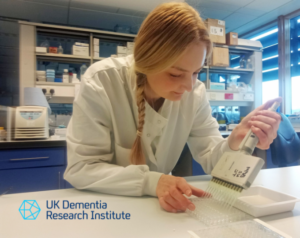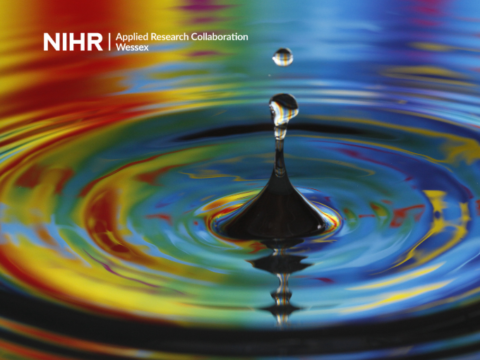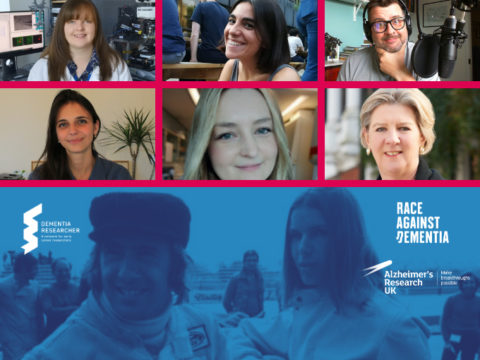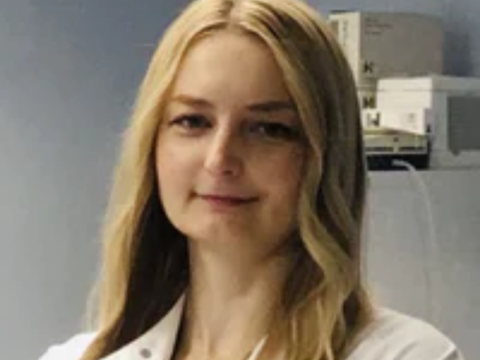
Dr Wioleta Zelek is completing her RAD Fellowship in UK DRI at Cardiff labs
When studying a condition like dementia, the UK Dementia Research Institute (UKDRI) aims to ensure their research has a life-changing impact on people, often through the development of new treatments and technologies. There are still many hurdles from the early stages of discovery science to the clinic, but a better understanding of the translation process is a key part to help focus the UKDRI aims and shape projects for the next stages.
Catch-up on this interview with recently appointed UK DRI Emerging Leader and Race Against Dementia Fellow at Cardiff, Dr Wioleta Zelek, about her research journey and experiences of developing and patenting research tools.
Last year a collaboration between Dr Zelek, Prof Morgan and Prof John Davis (Alzheimer’s Research UK, Oxford Drug Discovery Institute) received one of the first UK DRI Translation Awards – an initiative to fund pre-clinical analysis, drug target validation or other work directly related to finding treatments. Dr Zelek discusses the progress made so far.
“It’s a very exciting project, aiming to put the brakes on a very early component of the cascade – C3 convertase. We think that inhibiting C3 completely might be dangerous, as we do need these pathways to stop bacterial invasion. So, with this project we’re testing whether just inhibiting the convertase, rather than stopping it completely, is the best way to responsibly control the cascade.”
The team at Cardiff will be developing a robust, high-throughput screening assay to test for inhibitory drugs, as part of an automated library screening system based at the Alzheimer’s Research UK’s Oxford Drug Discovery Institute. With so much exposure to the processes and legalities behind biomedical translation, Dr Zelek offers her advice to other early career researchers.
Read the full article on the UKDRI website – https://ukdri.ac.uk/news-and-events/the-tools-to-translate-an-ecr-perspective-with-dr-wioleta-zelek

 Print This Post
Print This Post




